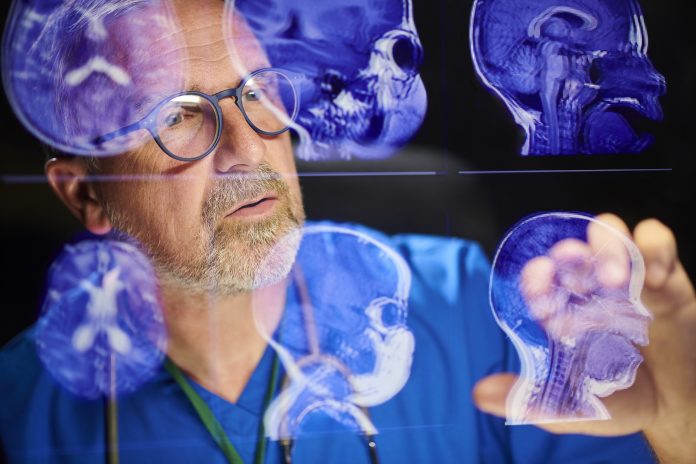Adrian Sutherland, Strategy Director (Global Healthcare) at Endava, outlines how artificial intelligence technologies can be a valuable tool in supporting healthcare staff and improving patient outcomes
The NHS has long suffered from major staffing, resourcing, and funding challenges, facing an ever-expanding list of patients in need of care while increasingly under pressure to curb waiting lists. Results from this year’s NHS Staff Survey revealed that only a quarter of the workforce say there are enough staff to do their jobs properly, and a third feel burnt out.
A lack of resources impacts the standard of patient care they can provide, with fewer people expected to handle growing workloads. When practitioners are stretched to their limits, rethinking workflows by automating procedures is critical to alleviating these pressures.
While we are far from seeing advanced artificial intelligence (AI) solutions being used to their full potential, it is clear that the need for supportive tools is gradually being recognised and encouraged. Recent draft guidance from NICE outlined how AI can be used in the NHS to speed up contouring in external beam radiotherapy treatment for lung, prostate, and colorectal cancers, marking a step in the right direction.
The evidence reviewed by NICE’s independent medical technologies advisory committee suggests that AI technologies produce similar quality contours of organs at risk as those carried out manually, with only minor adjustments needed. Sarah Byron, programme director for health technologies at NICE, said: “The role imaging plays in radiotherapy treatment planning is quite pivotal, so recommending the use of AI technologies to help support treatment planning alongside clinical oversight by a trained healthcare professional could save both time and money.”
The guidance will help free up valuable time for practitioners and improve patient care – a development that could quite literally save lives, especially as cancer outcomes are greatly improved with early treatment.
However, this is just one application of many that can support a more resilient healthcare system. Suppose the NHS leads with patient-centric care with the help of automated clinical workflows across its operations. In that case, it will see long-term health benefits for the organisation and the millions of people who rely on its services.
Taking the strain off healthcare staff with AI
AI can significantly lighten the load of repetitive tasks and allow professionals to focus on delivering the best care possible, especially regarding diagnostic procedures. Integrated AI systems can also support strong decision-making across the care continuum, from using real-time health data to recognise trends to identifying treatment options sooner. Of course, these benefits extend to patients, too, in the form of reduced waiting times and more accurate diagnoses, which make way for improved health outcomes.
As it stands, AI in the healthcare space is predominantly focused on the rapid advancements of Large Language Models (LLMs) across a broad range of tasks. While these tools are versatile, as AI matures, healthcare systems like the NHS will be able to take advantage of components with much greater scope. For example, developments will empower healthcare providers to benefit from a breadth of capabilities, including anticipating outcomes and replicating real-world scenarios, understanding vast amounts of data, ensuring seamless interaction between different AI components and uses, and supporting safety and ethical standards.
By diversifying investments beyond LLMs, AI can aid in processing medical literature and areas such as patient drug response prediction. For example, while LLMs can interpret patient feedback, other AI models enable real-time patient monitoring. This paves the way for proactive healthcare processes, keeping practitioners in the loop about potentially life-threatening health changes so they can offer treatments before illnesses worsen.
With unified communication components of AI, everything from genomics to patient histories and real-time monitoring can be integrated to create comprehensive patient profiles. When combined with predictive insights, these patient profiles can support diagnoses far more precise and timelier than current practices.
Putting patients at the heart of AI
Despite the promise of such AI applications, we still need input from medical professionals, especially regarding ensuring clinical safety and encouraging patient acceptance. In the case of AI-assisted radiography treatment, for example, inputs and oversight from radiographers and other attending NHS staff is still necessary.
But beyond being able to leverage the professional expertise of humans, the healthcare industry is one where compassion, empathy and human intuition can make all the difference to patient wellbeing and satisfaction. Investing in healthcare staff training on AI-assisted tools is key to supporting success and understanding how AI can be integrated into the fabric of the organisation’s culture.
Ultimately, AI should be viewed as a supportive tool when such a complicated ecosystem surrounds the patient. Providers need to be considerate of cultural barriers to embracing technologies and continuously evaluate individual patient needs and how technologies can support their unique medical and personal circumstances.
As the NHS seeks to implement and mature AI solutions, relieving the pressure on healthcare staff will come down to leveraging automation with a human-in-the-loop approach. In doing so, the organisation can support strong engagement and the very best outcomes for teams and patients.
Contributor Details
Editor's Recommended Articles
-
Must Read >> How can AI oncology diagnostics help the NHS?














